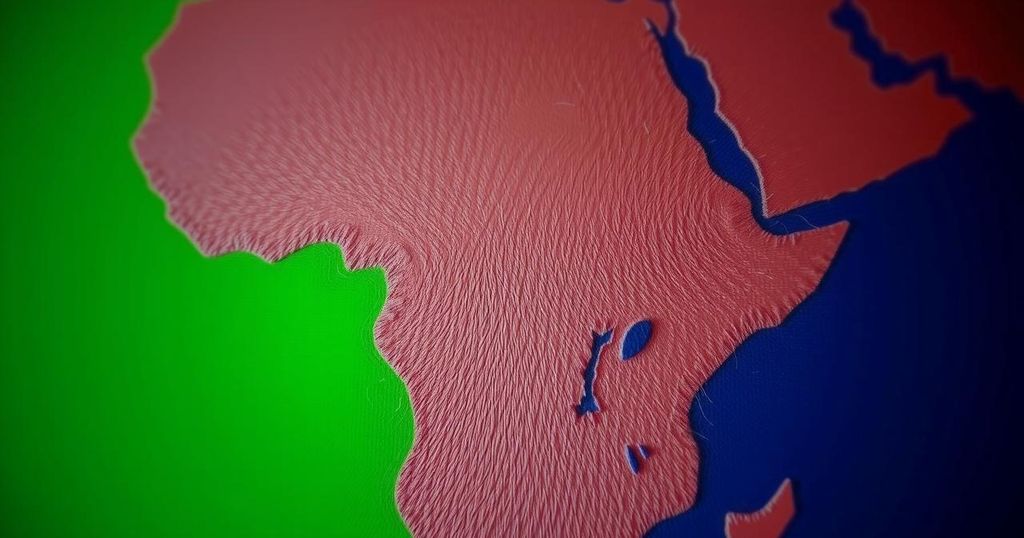Politics
AFRICA, ASIA, ASSOCIATED PRESS, AT, ATTAHER HALIDOU, BAMAKO, BANDIOUGOU DANTÉ, BURKINA FASO, CHINA, CORRUPTION, DEMOCRACY, HUMAN RIGHTS, JOLIBA, JOLIBA TV, JOLIBA TV NEWS, MALI, N ’ DJIM, NATIONAL TRANSITIONAL COUNCIL, PRESS FREEDOM, PRESS HOUSE OF, PRESS HOUSE OF MALI, THE ASSOCIATED PRESS, VIOLENCE
Fatima Khan
0 Comments
Mali Cuts Joliba TV Signal Over Criticism of Burkina Faso’s Ruling Regime
Mali’s military junta has cut the signal of Joliba TV News after the broadcaster aired remarks criticizing Burkina Faso’s regime. This follows the detention of politician Issa Kaou N’Djim and highlights ongoing crackdowns on press freedom and political dissent in Mali. The situation reflects broader patterns of repression as the junta grapples with regional security challenges.
Mali’s ruling military junta has halted the broadcast of Joliba TV News after the channel aired a debate in which a prominent politician criticized the military leaders of neighboring Burkina Faso. According to Attaher Halidou, a journalist with the channel, authorities severed the signal on the morning following the broadcast. Halidou expressed hope for a prompt restoration of their signal despite the troubling circumstances.
The controversy escalated earlier in the month when the Malian authorities detained political figure Issa Kaou N’Djim after his remarks during the televised debate, which claimed that the Burkinabe military government had fabricated evidence of a thwarted coup. Alongside N’Djim, the director of Joliba TV was also subjected to inquiry by the authorities. This incident underscores a broader trend of increasing repression of press freedom and political opposition in Mali, governed by the junta since 2020.
The recent signal cut represents yet another instance of the junta’s crackdown on dissent. In June, eleven opposition politicians and multiple activists were arrested, following a ban on media reporting about political parties. As the tension mounts, the Press House of Mali, which advocates for journalists, threatened to re-air the contentious debate should the authorities proceed with revoking the broadcaster’s license. Bandiougou Danté, president of the organization, indicated ongoing discussions with authorities aimed at finding a comprehensive solution to the crisis surrounding Joliba TV.
Additionally, N’Djim had previously served as a vice president of the National Transitional Council, Mali’s legislative body under military control. Initially supportive of the military regime, he later expressed advocacy for a return to democratic elections. The junta’s rule comes amidst escalating security challenges in the region, highlighted by a surged violence from extremist groups and accusations against government forces for potential civilian casualties.
In short, the situation reflects a growing stranglehold on free expression in Mali, with immediate implications for political discourse and the rights of the media in a complex and volatile regional context.
Mali has been under military governance since a series of coups in 2020, which arose amidst discontent with previous democratic administrations, particularly concerning security issues. Recently, the nation has seen intensified repression of dissent and a curtailment of press freedoms, illustrated by the actions against Joliba TV News. The junta’s relationship with neighboring Burkina Faso, which also experiences military rule, adds a layer of complexity to Mali’s political landscape. This may reflect deeper geopolitical tensions within the Alliance of Sahel States, of which both countries are members, particularly as security conditions continue to deteriorate amid ongoing assaults from extremist factions.
Mali’s interruption of Joliba TV’s signal reveals significant challenges to press freedom and political dissent under military rule. By targeting media outlets that criticize regional allies, the junta further cements its control over narrative and public discourse. Continued repression raises serious concerns regarding the future of democratic processes and freedom of expression in Mali, particularly as the security situation remains precarious across the region.
Original Source: abcnews.go.com




Post Comment